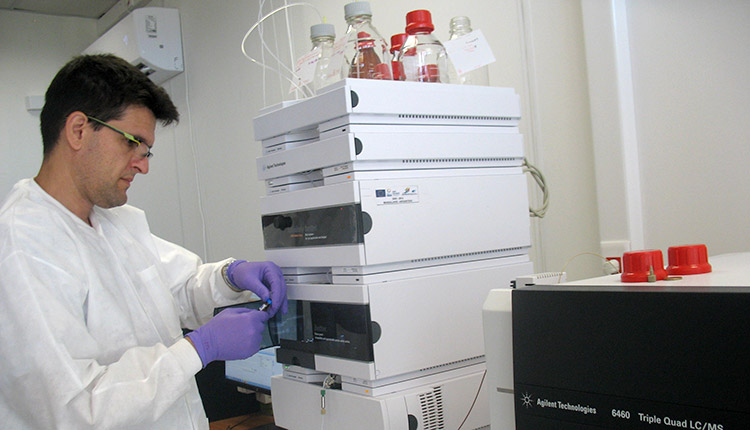
SPINAQUA coordinator M. Mandalakis gave an interview to “Patris” newspaper (a daily, local newspaper of Crete) and discussed about the exploitation of marine sponges as a means to reduce organic pollution in seawater and simultaneously produce high-valued natural products. The article is available online at https://www.patris.gr/2020/06/11/o-m-mandalakis-stin-p-oi-lagokefaloi-irthan-gia-na-meinoyn-stin-kriti/.
Excerpt of the sponge-related part of the interview:
Reporter: Among other things, you investigate the exploitation potential of marine sponges. What exactly are the benefits that we can get from these species?
M.Mandalakis: Marine sponges are one of the most interesting marine organisms. They feed by filtering suspended particulate matter from seawater (e.g. bacteria, phytoplankton), but also compounds that are present in dissolved form including organic pollutants. One kilogram of some sponge species can filter up to 24,000 liters of water per day. They are one of the strongest “vacuum cleaner” in the sea. On the other hand, sponges are known to produce various bioactive substances with useful properties, such as antioxidant/antibacterial activity. Therefore, research on sponge extracts and their utilization potential is of particular interest. Some other species are even a more attractive target for exploitation, as they can be used as bathroom sponges, which is a high value-added product.
In collaboration with researcher Thanos Dailianis, we are implementing a 3-year research program at IMBBC where we examine the possibility of parallel cultivation of sponges in fish farms with the aim of reducing organic pollution and simultaneously producing high-valued natural products. In essence, we will try to identify local species of marine sponges with optimal characteristics in terms of natural abundance, cultivability/viability, “bio-production” performance and “cleaning” capacity in the seawaters of Crete. The SPINAQUA program is funded by the Hellenic Foundation for Research and Innovation (HFRI) and the General Secretariat for Research and Technology (GSRT).
Reporter: After all, are the bioprospecting opportunities of marine species inexhaustible? What percentage of them have we managed to identify until now?
M.Mandalakis: The number of microorganisms and higher organisms living in the sea is huge. Especially the Mediterranean and the Greek seas in particular are known to have one of the highest biodiversity in the world. The largest percentage of organisms have been studied only in terms of their morphological characteristics, but their genetic and chemical diversity remains relatively unexplored. Therefore, little is known about the bioactive compounds, enzymes, nutritional value or other beneficial properties that different species can offer. At present, marine organisms are mainly treated as a food source, but the benefits we can reap from them are inexhaustible. This is one more reason why the protection of marine ecosystems and biodiversity deserves our utmost attention.
